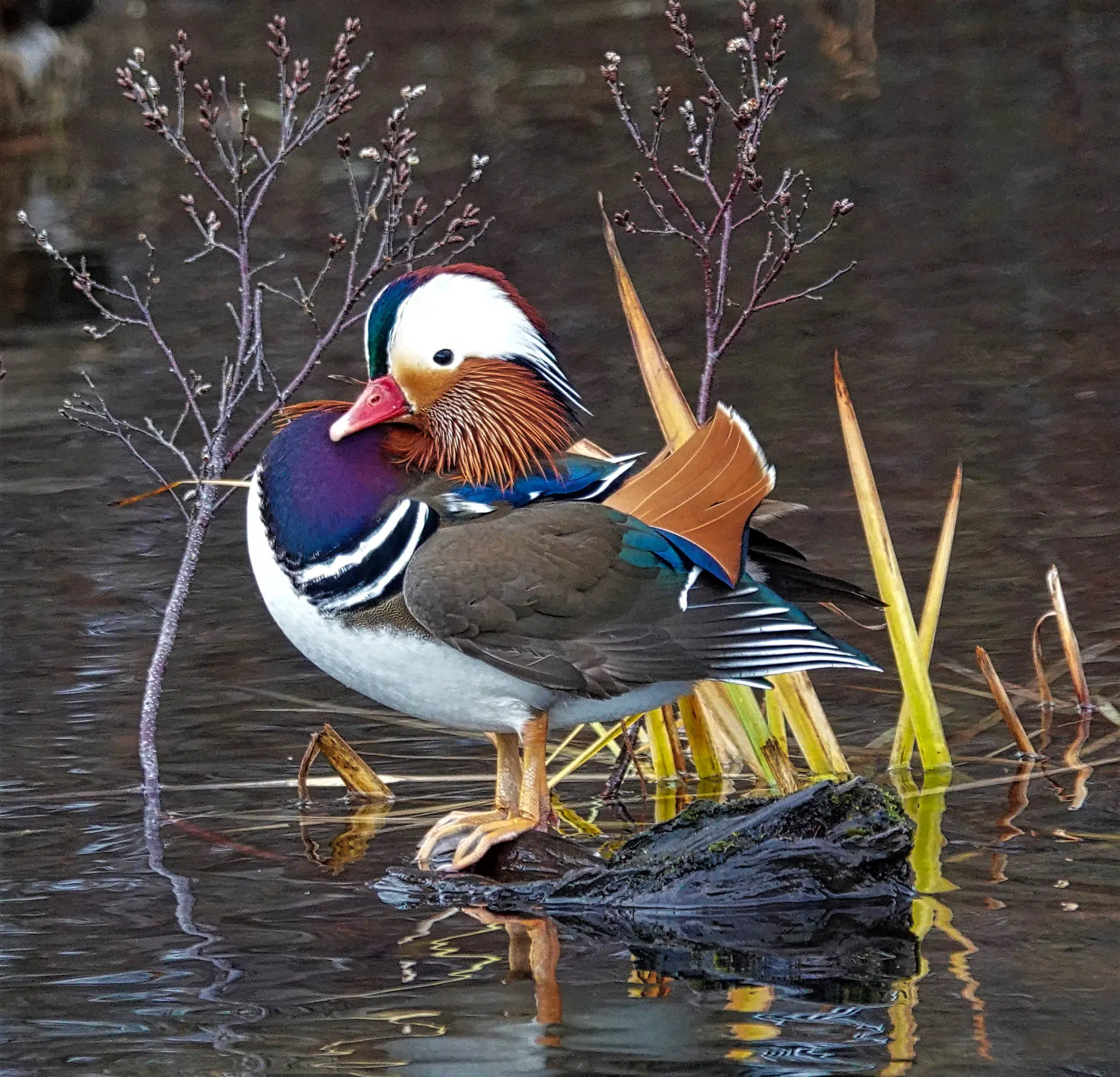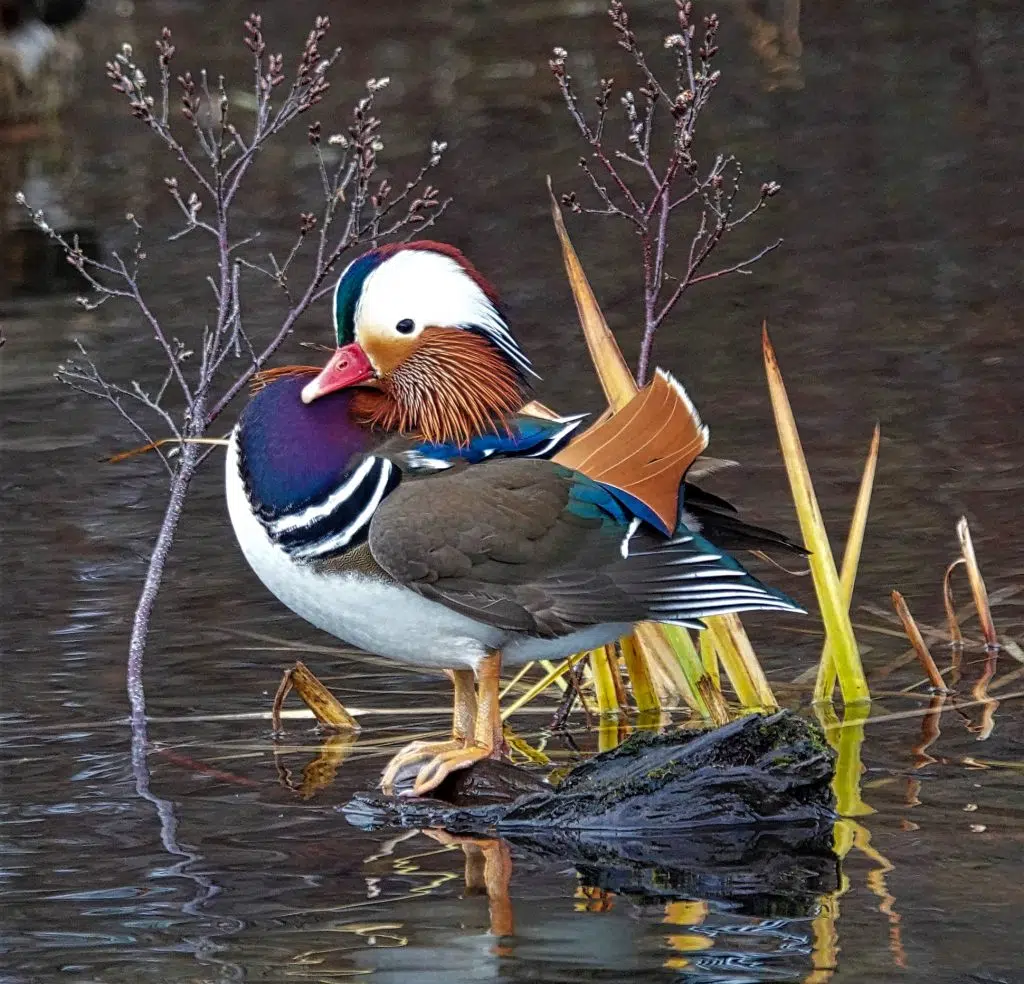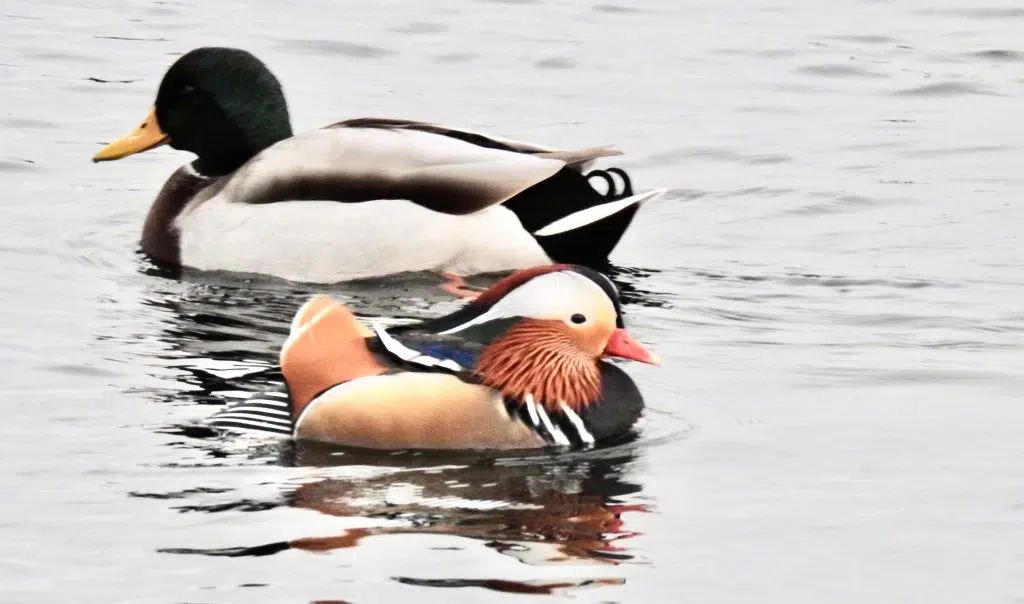
Mandarin Duck. (Jane Brown via Nova Scotia Wildlife Photography Facebook page)
Bird watchers and wildlife photographers have been flocking to Dartmouth to grab snapshots of a rare sighting.
Residents have been sharing their photos online of a mandarin duck, which has been swimming in the waters at Albro Lake Beach.
The rehabilitation facility Hope for Wildlife has received calls about the animal and is looking at ways it can help.
Founder Hope Swinimer believes the duck likely had a home once.
“Sadly, it is probably a domestic animal that someone bought as a pet, and it probably escaped from them and went into the wild population,” Swinimer says. “Sometimes people buy all kinds of birds and for whatever reason they escape on them or they get tired of them as a pet. They let them go into the wild ecosystem, and this might be what happened with this duck.”
The male mandarin duck is known for its beautiful colours, which include a greenish-black forehead, a purple crest, and a chestnut patch below the eyes.
You can see several photos on the Nova Scotia Wildlife Photography Facebook page.

Mandarin Duck. (Source: Nova Scotia Wildlife Photography on Facebook, Jane Brown)
The animal is native to Asia and rare in North America. They’re highly social and often fly in large flocks during winter.
Swinimer is not worried about the cool temperatures in Halifax as winter quickly approaches here, but the food supply.
“The reason animals tend to migrate, or birds tend to migrate, is because of lack of food not so much the cold weather,” Swinimer says. “They are very well-equipped and they are built a little bit different than humans as far as their blood flow and that kind of thing. The cold weather is not as concerning as [ the question] is this animal going to be able to sustain itself for food supply through the winter?”
Experts have been monitoring the area to determine if they can catch the critter. Swinimer explains that could be an impossible task if the bird is quick to take flight.
But she believes there is a potential bright side.
The mandarin duck could adapt to life in the wild and pair up with similar animals in the area to survive.

Mandarin Duck. (Source: Nova Scotia Wildlife Photography on Facebook, Robert Graham)
Swinimer reminds us this is not an isolated situation. She says whenever you decide to welcome an unusual pet into your life, you need to be prepared.
A good tip is to do your research and to build a sturdy place for your pets to ensure they don’t get lost in the wild.
“I think the important thing is to always be really careful whenever you are thinking of taking on an unusual pet,” Swinimer says. “There are a lot more people getting chickens, hens, and roosters, and often times the roosters go astray and are found in the woods. They’re never going to survive in our wild world.”
Swinimer promises to provide updates on our Albro Lake duck if he is caught or has success with his wild adventures.
**With files from Cheyenne Nelson.








